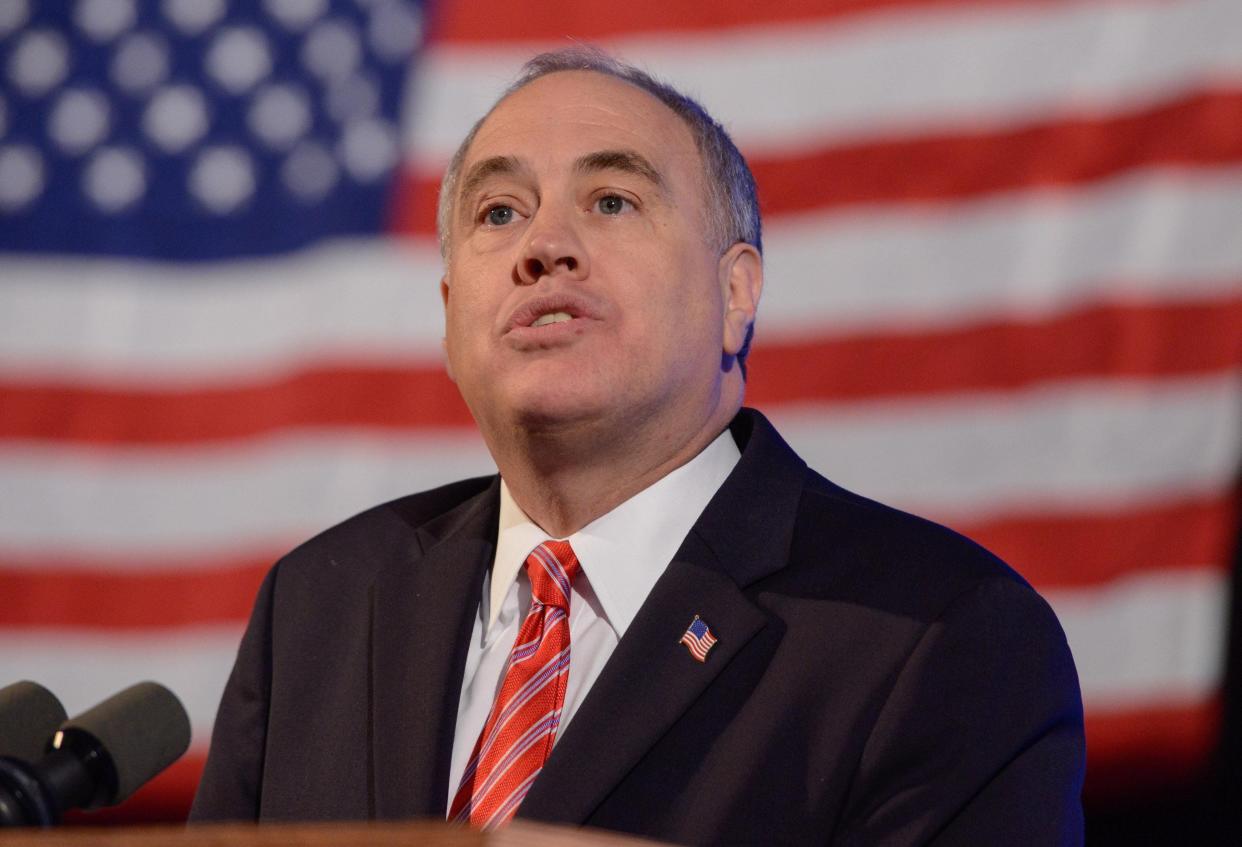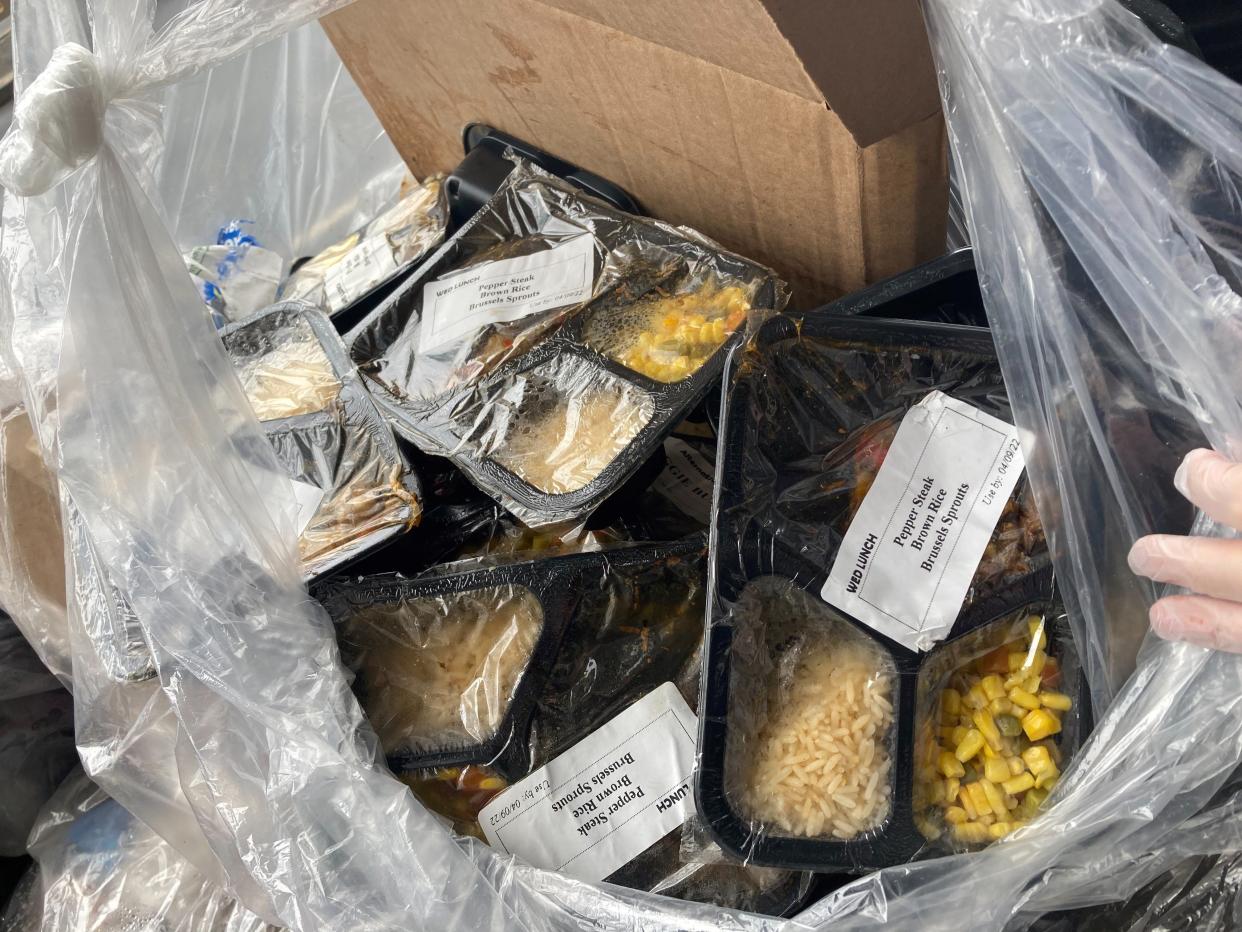Brooklyn homeless shelter wasted $500,000 worth of food, $2.4 million overall, New York comptroller finds
A nonprofit that runs a downtown Brooklyn homeless shelter couldn’t account for how it spent nearly $2.4 million in funding it received from the city’s Department of Homeless Services over three years, a new audit conducted by the state comptroller’s office found.
Comptroller Tom DiNapoli’s review determined that the city’s Department of Homeless Services also “did not complete required expenditure reviews” and that the provider it funded, the Institute for Community Living, may have wasted more than 155,000 meals worth nearly half a million dollars from 2016 to 2019.

New York State Comptroller Thomas P. DiNapoli (Anthony DelMundo/)
DiNapoli said the audit demonstrated that the city’s homeless services agency has to “do a better job ensuring the city’s homeless shelters are run properly.”
“Our audit found a shelter charged expenses to the city with little or no explanation and unconscionably and regularly threw mountains of food into the trash,” he told the Daily News. “New York City has a homelessness crisis and must demand more accountability from shelter providers, who are paid millions of dollars.”
The waste cited in DiNapoli’s report occurred between July 1, 2016, to June 30, 2019. During that period, the contract with ICL cost the city roughly $51 million with reimbursable expenses tied to the contract coming in at about $25 million.
Those expenses occurred squarely within the administration of former Mayor Bill de Blasio. But the current mayor, Eric Adams, will be responsible for rectifying the situation — especially given that the nonprofit is still under contract with the city to provide services, according to public records.

A recent audit by NYS Comptroller Tom DiNapoli found that the Institute for Community Living may have wasted more than 155,000 meals over a three-year span.
When asked what the city has planned to address the waste and unaccounted-for expenses, Adams’ press team did not immediately respond.
The revelations from DiNapoli come at an inopportune moment for Mayor Adams.
An influx of thousands of migrants from South and Central America seeking asylum has put a strain on the city’s homeless infrastructure and led to dozens of instances of the city violating the state’s right-to-shelter law. On Monday, Adams announced that one of those asylum seekers committed suicide.
For Adams, the situation has been a huge political headache — and a political win for Texas Gov. Greg Abbott, a Republican who has actively been shipping busloads of the migrants to the Big Apple in protest of President Biden’s immigration policy.
For weeks, Adams has said he’s committed to assisting the asylum seekers, but he also signaled this weekend that the city may sue Texas over its policy.
The comptroller’s new audit amounts to one more problem for Adams, who took over the reins at City Hall in January.
Starting in 2014, the Institute for Community Living was in contract with the Department of Homeless Services until December 2021 to provide shelter and medical care to mentally ill and drug-addicted women at the Tillary Street Women’s Shelter. From 2016 to 2019 — the period DiNapoli’s audit focused on — the nonprofit claimed $24.5 million in reimbursable expenses for the contract. Of those expenses, DiNapoli found that $1.2 million in personal service costs were ineligible for reimbursement and that $1.1 million in indirect and other expenses were also ineligible.
Among the waste were thousands of meals discarded by the nonprofit, the comptroller found.
According to the audit, the comptroller requested 36 months’ worth of “food usage logs,” but received only 21 months’ worth.
“These logs show that, for the 21-month period, ICL purchased 267,883 meals costing a total of $763,538. Of these, we determined that 89,154 meals (33%), valued at approximately $255,717, were discarded,” the audit notes. “Projecting our calculations to the remaining 15 months of the audit period, we estimate that ICL may have discarded approximately 155,760 meals (valued at $444,690) over the full 36-month audit period.”
The audit reported that DHS officials “disagreed” with those findings, but the comptroller’s office said it stood by its findings.
In conducting its audit, the comptroller requested employee time records to verify claims made by the nonprofit. But the Institute for Community Living couldn’t provide a full accounting of those records, claiming to DiNapoli’s team that they were lost in a 2019 computer hacking attack.
The nonprofit’s president and CEO, Jody Rudin, said that while she does not agree with all of DiNapoli’s findings, she acknowledged that “we have had some documentation and oversight challenges” and have implemented “processes to enhance oversight.”
“We rolled out an automated document management system. We are now tracking food consumption across our shelters and calibrating the number of meals we purchase to meet the demand for meals. We have always followed the spirit of the law, and the new systems we have created will better ensure we follow the letter of the law,” Rudin said. “Above all else, we strive to be good partners to our government funders and provide care and support to the thousands of clients who count on us.”
Aside from the food waste and personnel costs, the audit also found scant records for other expenses racked up by the Institute for Community Living, which “did not provide invoices and/or proof of payment” for more than $71,000 in utility expenses, $61,000 in insurance costs and nearly $52,000 in facility repairs.
DiNapoli found fault with the Department of Homeless Services, too.
“We determined that DHS did not adequately monitor ICL’s fiscal activities,” the audit states. “DHS’ internal controls were not sufficient to detect unallowable and unsupported expenses claimed by ICL and to prevent paying for these expenses.”
